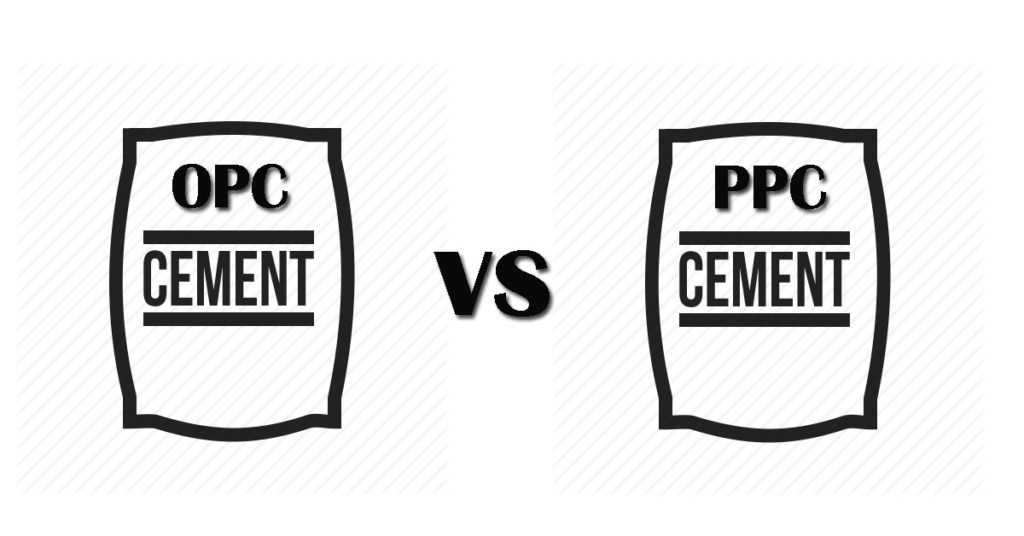OPC stands for Ordinary Portland Cement while PPC stands for Portland Pozzolana Cement. In this blog post, I am briefly explaining the difference between OPC and PPC cement.
So, let’s dive right in.
![Difference between OPC and PPC cement]()
Difference between OPC and PPC Cement
Following are the differences between OPC and PPC cement:
Ordinary Portland Cement (OPC) | Portland Pozzolana Cement (PPC) |
- OPC is a fine powder prepared from a mixture of limestone and clay minerals and 2 to 3 percent gypsum is added to it.
| - PPC Cement is prepared by adding Pozzolanic materials like fly ash to OPC Cement.
|
- The initial strength of OPC is higher than PPC.
| - The initial strength of OPC is higher than PPC, but the strength of PPC is higher in the long run.
|
- OPC generates more heat during the hydration reaction which makes it less suitable for mass concreting.
| - PPC generates less heat than OPC during the hydration reaction.
|
- OPC is costlier than PPC.
| |
- Ordinary Portland cement is the most common cement in general use worldwide. OPC cement is less durable in aggressive weather than PPC cement.
| - PPC is highly resistant to sulfate attacks and hence more suitable for marine construction such as the construction of dams, reservoirs, etc.
|
- OPC is available in 3 grades: OPC 33, OPC 43, and OPC 53.
| - No specific grade is assigned for PPC.
|
- OPC has a fineness of 225 sqm/kg.
| - PPC has a fineness of 300 sqm/kg.
|
- The initial setting time of OPC should not be less than 30 minutes and the final setting time of OPC should not be more than 600 minutes.
| - The initial setting time of PPC should not be less than 30 minutes and the final setting time of PPC should not be more than 600 minutes.
|
You may also like to read:
- Difference between Shuttering, Formwork, Scaffolding & Centering
- Types of Parapet Wall, Uses & Design Ideas
Last Words
I hope you got complete information about the difference between OPC and PPC Cement in this article.
If you found this article helpful, share it with your friends.
Leave a comment if I missed anything.
Happy Learning!!



